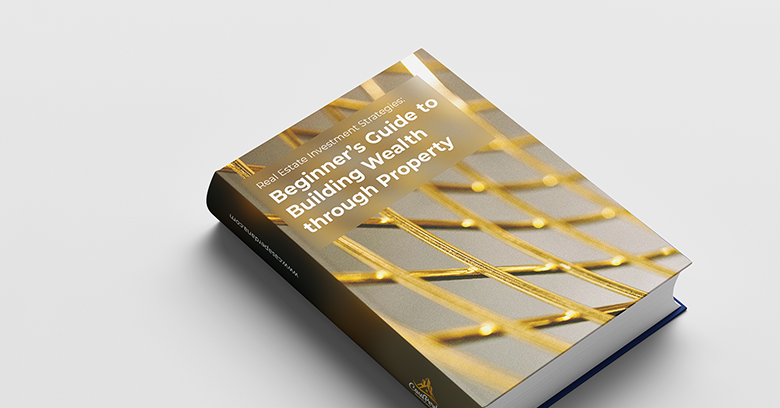Jump Into Real Estate Investing: The Ultimate Guide
Real estate investment is a lucrative venture that offers numerous opportunities for individuals to grow their wealth and build a sustainable income stream. Whether you are a seasoned investor or a novice looking to venture into the world of real estate, understanding the different types of real estate investments is crucial to making informed decisions.
What are the Different Types of Real Estate Investments?
Residential Real Estate Investment
Investing in residential real estate is a popular choice for many individuals. This type of investment involves purchasing properties such as single-family homes, townhouses, and condominiums for the purpose of generating rental income or capital appreciation. The demand for residential properties often remains stable, making it a relatively low-risk investment option.
Commercial Real Estate Investment
On the other hand, commercial real estate encompasses properties used for business or commercial purposes, including office buildings, retail spaces, and industrial properties. Investing in commercial real estate can offer higher potential returns, but it also comes with more substantial risks due to market volatility and economic trends.
Real Estate Investment Trusts (REITs)
Real Estate Investment Trusts, commonly known as REITs, provide investors with an opportunity to invest in real estate without actually owning physical properties. REITs are companies that own, operate, or finance income-generating real estate across a range of property sectors. Investing in REITs can offer diversification and regular income through dividend payments.
How to Start Your Own Real Estate Business?
Once you have familiarized yourself with the various types of real estate investments, you may consider starting your own real estate business. Embarking on this journey requires careful planning and a strategic approach to ensure long-term success.
Understanding the Market and Demand
It’s essential to conduct thorough market research and analyze the demand for different types of real estate in your target area. Understanding the local market trends and economic indicators will help you identify lucrative investment opportunities and tailor your business strategies accordingly.
Developing a Business Plan
Creating a comprehensive business plan is a fundamental step in establishing a successful real estate business. Your business plan should outline your goals, target market, financial projections, marketing strategies, and risk management approaches. A well-crafted business plan will serve as a roadmap for your entrepreneurial endeavors.
Building Your Network and Team
Networking with real estate professionals, potential investors, and industry experts can open doors to valuable opportunities and partnerships. Surrounding yourself with a competent team of real estate agents, brokers, legal advisors, and contractors will provide the support and expertise necessary to navigate the complexities of the real estate market.
What are the Ways to Invest in Real Estate?
There are various avenues through which individuals can invest in real estate, each offering unique benefits and considerations. Understanding these different investment options will assist you in formulating a diversified and well-balanced investment portfolio.
Investing in Rental Properties
Purchasing residential properties and leasing them to tenants can be a rewarding strategy for generating consistent rental income. Rental properties offer the potential for long-term wealth accumulation through property appreciation and equity buildup, making them an attractive investment choice for many investors.
Real Estate Crowdfunding
Real estate crowdfunding platforms have revolutionized the way individuals invest in properties. Through crowdfunding, investors can pool their resources to participate in real estate projects, including residential and commercial developments. This approach provides accessibility to real estate investments with lower capital requirements and minimized direct involvement in property management.
Real Estate Development Projects
Engaging in real estate development projects involves acquiring land or underutilized properties and enhancing their value through construction, renovation, or redevelopment. While this type of investment requires a higher level of expertise and capital, it offers the potential for substantial returns and the creation of thriving communities.
Understanding the Nuances of Real Estate Investing
As you delve deeper into the realm of real estate investing, it’s imperative to familiarize yourself with the intricacies and essential factors that influence investment decisions and outcomes.
Working with Real Estate Professionals
Collaborating with experienced real estate professionals such as agents, brokers, and realtors can provide valuable insights and guidance throughout your investment journey. These professionals offer market expertise, negotiation skills, and access to exclusive property listings, enhancing your investment opportunities.
Understanding Mortgages and Financing
For many investors, securing financing through mortgages and loans is a critical aspect of real estate investment. Familiarizing yourself with different loan options, interest rates, and repayment terms will enable you to make informed financing decisions and optimize your investment returns.
Navigating Foreclosure and REO Properties
Foreclosure properties and Real Estate Owned (REO) properties present unique investment opportunities for individuals seeking discounted real estate assets. However, understanding the legal procedures, associated risks, and property evaluation processes is vital to effectively navigate these specialized segments of the real estate market.
Exploring Real Estate Investment Opportunities
As the real estate industry evolves, diverse investment opportunities continue to emerge, offering investors new avenues to expand their portfolios and capitalize on market trends.
Real Estate Investment Groups
Real estate investment groups, also known as real estate investment clubs, bring together individual investors to collectively invest in properties or projects. Participating in these groups provides access to shared resources, expert guidance, and the potential to leverage collective purchasing power for larger and more lucrative real estate endeavors.
Engaging with Real Estate Platforms
With the advancement of technology, real estate platforms and online marketplaces have become instrumental in facilitating real estate transactions and investments. These platforms offer comprehensive property listings, investment analysis tools, and seamless transaction mechanisms, empowering investors to explore and engage with various real estate opportunities.
Considering Real Estate Industry Trends
Staying abreast of real estate industry trends and market dynamics is essential for informed decision-making. Factors such as demographic shifts, urban development initiatives, and technological advancements significantly influence investment prospects, and being attuned to these trends enables investors to capitalize on emerging opportunities and mitigate potential risks.
Real estate investing can be an incredibly lucrative way to grow your money if done right. But where do you start? This ultimate guide breaks down everything you need to know to begin investing in real estate.
I’ll explain the different types of real estate investments, strategies to get started, and tips for minimizing risk. Whether you want to flip houses, build a rental property empire, or invest in REITs, you’ll learn how to pick the right approach for you. Let’s dive in!
What Are the Main Ways to Invest in Real Estate?
Real estate is property consisting of land and any permanent improvements attached to the land. There are several types to consider:
Residential– Single-family homes, townhouses, condominiums
Commercial – Office buildings, shopping centers, hotels, industrial buildings
Raw land– Undeveloped land purchased for investment purposes
REITs – Real estate investment trusts that invest in income-producing properties
The main ways to invest include:
– Rental properties – Buying properties to rent out long-term
– House flipping – Buying undervalued properties, renovating, and reselling for profit
– Real estate crowdfunding – Pooling funds with others to invest in properties
– REIT investing – Buying shares in real estate investment trusts
How Do You Start a Real Estate Investment Business?
Starting a real estate investment business takes research, planning, and capital. That is why Casaperdana have made some key steps:
1. Educate yourself – Read books, take courses, and learn from experienced investors to understand the industry, financing, regulations, etc.
2. Develop a business plan – Outline your goals, target market, startup costs, exit strategies, and projected returns. This will guide your activities.
3. Line up financing- Use savings, home equity lines, investor loans, or hard money loans as capital to fund purchases and renovations.
4. Choose a focus- Will you flip, buy rentals, wholesale, invest in commercial properties? Having a niche helps inform your business plan.
5. Build your team- Partner with real estate agents, lenders, contractors, property managers, CPAs and lawyers to assemble expert support.
What Are the Best Places to Invest in Real Estate?

The best real estate markets have affordable home prices coupled with strong population and job growth. This supports rising property values over time.
Top places in 2024 include:
Katampe – Katampe Main, Katampe extension
Wuye – Dakibiyu, Wuye Main
Life camp
Evaluate markets on price growth, rents, vacancy rates, employment trends and more. Network with top Investor groups to connect with savvy area investors too.
Should You Invest in Residential or Commercial Property?
There are pros and cons to each type:
Residential
– Lower investment amounts
– Easy to understand/access
– More exit strategies
Commercial
– Higher returns (8-12% caps vs 5-7% for residential)
– Long-term leased tenants
– Risk mitigation through diversification
Commercial properties serve business tenants with spaces like office, retail, storage units, hotels and industrial buildings. The larger scale brings bigger upside but also bigger risk.
Many investors start with residential real estate before expanding into commercial.
What Are the Best Ways to Find Investment Property Deals?
Using the right strategies, you can consistently find profitable deals:
MLS Off-Market Listings: Find distressed sellers before homes are widely marketed
Wholesalers: Buy property contracts from wholesalers who have properties under contract
Courthouse Auctions: Bid on courthouse sale foreclosure properties
Probate: Make offers to heirs inheriting property
Driving for Dollars: Look for vacant/neglected houses while driving then research ownership info
Direct Mail: Send physical mail with offers to buy houses to target motivated sellers
Bandit Signs: Place signs advertising you buy houses to generate seller leads
How Does Real Estate Crowdfunding Work?
Crowdfunding pools money from multiple investors to buy property. This increases buying power while diversifying risk across larger real estate assets like apartment complexes or office buildings.
Investors can browse listings on sites like Fundrise, CrowdStreet, and RealtyMogul and choose projects matching their criteria. Invest as little as $1,000 towards equity or debt. Returns between 8-12% are common.
It provides a more passive approach to real estate investing without having to manage properties yourself. Beware of fraud and high fees with some operators however.
What are REITs and Why Invest in Them?
REITs (real estate investment trusts) are companies that own and manage income-producing real estate. They sell shares to investors so anyone can gain exposure to portfolios of commercial properties like hotels, resorts, offices and more.
Benefits of REITs:
– Dividends often between 3-6%
– Professionally managed properties
– Liquidity to buy/sell shares easily
– Diversification across real estate asset classes and geography
– Low investment amounts
Research sector-specific REITs with strong historical FFO growth and occupancy rates above industry average.
What Are the Risks of Real Estate Investing?
While real estate can build significant wealth, it doesn’t come without risk:
– Unable to find tenants
– Cost overruns on repairs
– Natural disasters
– Rising interest rates
– Difficulty securing financing
New investors often underestimate costs for renovations, maintenance, insurance, property taxes, vacancies etc. Manage risks by analyzing deals extensively, budgeting carefully, starting small, and diversifying across different markets.
Real Estate Investing Tips & Best Practices
Follow these top tips from seasoned investors:
– Treat it like a business – For the best chance of success, take a business-minded approach with an LLC structure, business bank accounts, tracked income/expenses, contracts, processes, etc.
– Start small – Don’t overextend with your first few properties. Start with a single-family or small multi-unit.
– Focus on cash flow – Hunt for properties with strong cash flow to lower risk if you’re holding long term.
– Inspect thoroughly – Budget for professional inspections before buying to uncover major issues early.
– Factor in maintenance – Leave room in buy/hold budgeting for ongoing maintenance costs that pop up.
– Build your team – Have experienced pros in place (real estate lawyer, closing agent, property manager, insurance agent, etc.) to support you.
– Be persistent – Real estate success comes to those that hustle hard and follow up methodically. Craft offers carefully.
The barriers to begin are lower than most people realize. You don’t need to be rich or have perfect credit to start. But you do need dedication and persistence.
With the right property, financing and exit strategy, almost anyone can succeed with rental properties, flips, crowdfunding or wholesaling. Define your profit goals and risk tolerance then make a plan to take action. The time is now!
In summary:
– Real estate investing offers many wealth-building avenues like buy/hold rentals, fix/flips, REIT investing and real estate crowdfunding
– Commercial properties provide higher returns but require more capital; residential properties easier to understand
– Follow best practices like starting small, focusing on cash flow, inspecting throughly and building the right team
– Persistence and hustle is key to finding profitable deals consistently, then maximizing value
I hope this overview gives you clarity and confidence to move forward with your first – or next – real estate deal!




